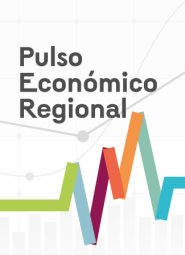Financial Crises, Debt Volatility and Optimal Taxes
The series Working Papers on Economics is published by the Office for Economic Studies at the Banco de la República (Central Bank of Colombia). It contributes to the dissemination and promotion of the work by researchers from the institution. This series is indexed at Research Papers in Economics (RePEc).
On multiple occasions, these works have been the result of collaborative work with individuals from other national or international institutions. The works published are provisional, and their authors are fully responsible for the opinions expressed in them, as well as for possible mistakes. The opinions expressed herein are those of the authors and do not necessarily reflect the views of Banco de la República or its Board of Directors.
We study nancial crises in a small open production economy subject to credit constraint and uncertainty on the value of debt repayments. We nd that the possibility of reducing the severity of future crises encourages the central planner (CP) to increase both the crisis frequency and current debt. The CP equilibrium can be implemented by a macro-prudential tax on debt and, only during crises, subsidies on consumption and a tax on non-tradable labor. The welfare gain of implementing such equilibrium is small for the baseline scenario but very sensitive to changes in debt volatility and the economys degree of openness.
The opinions expressed here do not necessarily correspond neither to the Banco de la República nor its Board of Directors.
Update 31/10/2014 10:23 a.m.





























































